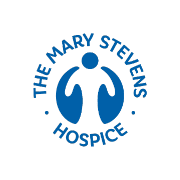No Barriers Here Research
‘It’s more than rainbows in receptions’ – Working with LGBTQ+ People in Palliative and End of Life Care
This study developed from a reflection from an LGBTQ+ person who noticed an increased tendency for organisations to display the rainbow or progress flag as a sign of inclusivity, but without deeper thought, culture change, training or improvements in care delivery. This co-produced resource includes the diverse voices of LGBTQ+ people who shared their experiences, views and opinions. We hope that it acts as a prompt to consider LGBTQ+ people in your own context, enabling each of us to contribute to safer, more equitable palliative care.
“I just felt judged. The counsellor was well-meaning, but seemed to be unsure of her language about simple things like asking if I had a partner or a husband, and I felt like the spectacle, the different one, the unusual one – as a gay man this shouldn’t be the case in this day and age.”
Funded by Marie Curie UK
No Barriers Here: for people excluded by identity, culture, ethnicity and race
No Barriers Here: for people excluded by identity, culture, ethnicity and race is a research study that explored using different approaches to advance care planning, using arts-based methods to gain a better understanding of the experiences and choices of minoritized ethnic people and communities.
The two-year study commenced April 2021 and is a co-produced community-based action research project that aims to improve access to palliative and end of life care for people who may be excluded by identity, culture, ethnicity or race. This research was funded by NHS Charities Together and led by The Mary Stevens Hospice, in partnership with The Dudley Group NHS Foundation Trust.
No Barriers Here: for people excluded by identity, culture, ethnicity and race research report (March 2023)
This report exists to share the stories and lived experience of people who are often outside of the margins of palliative care systems.
It acknowledges the racism, discrimination, direct and indirect bias and underrepresentation that people from minoritized ethnic communities experience when trying to navigate or access complex care systems. We advise that the report findings and recommendations for practice are to be used at an individual, place-based and system-wide level.
Every stage of this research study was developed, guided and challenged by each and every member of the co-production team. This report is authored on behalf of every member.
“It is critical to explore and analyse the provision of services and care through a lens of inequity and inclusion, in co-production with people and communities and with an open culture of curiosity to different approaches and ways of working. Only then will we move forward towards genuine equitable and accessible palliative and end of life care.”





